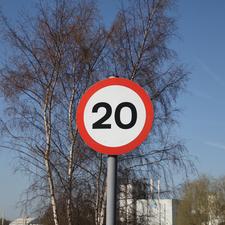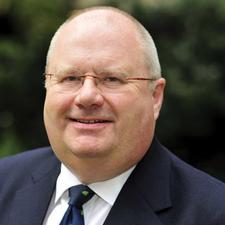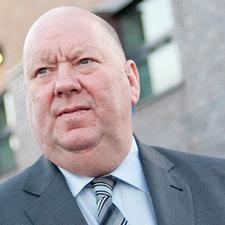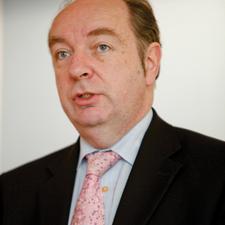Copied from Local Transport Today
Norman
Baker is getting heavy with Liverpool about plans to suspend bus lanes, in case
it sets a precedent:
Drop bus lane suspension plan, Baker urges Liverpool’s mayor
Transport Minister Norman
Baker this week put pressure on Liverpool’s directly elected mayor, Joe
Anderson, to drop a trial suspension of every bus lane in the city. In a letter
to the Labour mayor, Baker says the plan is not “just a matter of local
interest” and that suspending the bus lanes will “send out a worrying signal
nationally about the importance of excellent public transport, especially in
large city areas”.
Liverpool’s cabinet approved
plans last week for a nine-month trial suspension of all 24 of the city’s bus
lanes, which have been implemented over the last 20 years. The trial is due to
come into effect on 21 October. Bus lane signs will be covered up and bus lane
enforcement cameras will be switched off or removed and used for other
activities, such as monitoring anti-social behaviour. Council officers say the bus lanes have led to “no
clear change in modal shift” towards buses but have worsened traffic congestion
and, possibly, air pollution.
Baker this week urged the
mayor, who is the driving force behind the plans, to think again. “I would be
concerned if decisions about changes to bus lanes, such as you may wish to take,
were taken without the fullest regard to the implications,” he said. Bus lanes
boosted bus punctuality, encouraged modal shift and eased congestion, he added.
In addition, “once bus passengers are lost as a result of falling punctuality
and reliability, experience suggests they would be hard to win back”.
Baker went on: “If the issue
in Liverpool is actually about the effectiveness of specific bus lanes – and I
understand that bus operators in Liverpool accept that some work less well than
others – can I suggest that a more targeted approach might be appropriate rather
than the blanket suspension proposed, including a prior analysis before any
suspension is enacted.”
He said that if the mayor
chose to proceed with a trial then it should be conducted together with bus
operators and Merseytravel. Phil Stone, regional managing director, Arriva
North West and Wales said: “We are disappointed that the mayor is recommending
that Liverpool’s bus lanes are to be removed without any meaningful consultation
on the issue. Any decision that has the potential to result in such a negative
impact on city centre traffic, especially in the busy build-up to Christmas,
should not be based on ‘gut feeling’, but instead should be as a result of
serious, professional investigation and discussion regarding the possible
outcomes.”
A Stagecoach spokesman told
LTT: “This is a backward step and will have a negative impact on the mode of
travel relied on by people on the lowest incomes in Liverpool. We believe the
focus for Liverpool should be on more bus priority measures to help drive
increased use of public transport – that is the most effective way to reduce
pollution and congestion in the city.”
Ron Abbey, Merseytravel’s
lead member for buses and a Wirral Labour councillor, told LTT: “We have to
respect the mayor and his wishes. [But] We have the right to try and convince
him it’s the wrong decision.”
In recent years Merseytravel
has drawn up proposals for a series of Statutory Bus Quality Partnerships (SQBP)
for particular bus routes in the conurbation. These would prevent councils from
removing bus lanes during the life of the partnership. Liverpool, however, has
refused to sign the SQBP agreements.
The council says some of the
city’s bus lanes force drivers to make a one-mile detour through some of the
city’s busiest junctions and that many drivers stay out of the bus lanes even
when they’re not operating, thereby worsening congestion.
“Monitoring has identified
that some of the bus lanes are underutilised,” the council adds. It says
Merseytravel has identified four lanes in the city that are of little value to
buses. “Many other local authorities have suspended of removed bus lanes from
their highway networks,” Andy Barr, Liverpool’s divisional manager for highways
and transportation told the cabinet. He cited Bristol, Ealing, Birmingham, Derby
and Wigan.
The council will study the
effect the suspension has on congestion and consider whether any or all of the
lanes should be reinstated. It will also consider the conversion of lanes to
High Occupancy Vehicle lanes or the implementation of Red Routes, though such
measures could only be implemented in the “longer term”.
Phil Stone said Arriva would
be happy to work with the city council to develop a city centre movement
strategy and investigate how journeys would be affected by the removal of bus
lanes. “We would welcome the opportunity to discuss these issues with the
decision-makers within Liverpool City Council, we have written to the mayor’s
office and made our views clear but have not, as yet, received a
response.”
Our comment.
So when it comes to 20 Zones, a blanket is OK Norman? As is bus companies being allowed to profit from road space owned by all ratepayers and tax payers too? When you half a road, what do you get? Congestion!!
----------------------------------------------------

 Norfolk: no to area-wide 20 mph speed
limits
Norfolk: no to area-wide 20 mph speed
limits Pickles: cameras ‘used to raise cash’
Pickles: cameras ‘used to raise cash’ Liverpool Mayor Joe Anderson
Liverpool Mayor Joe Anderson Suspending all bus lanes would send out a “worrying signal
nationally”, Norman Baker
Suspending all bus lanes would send out a “worrying signal
nationally”, Norman Baker